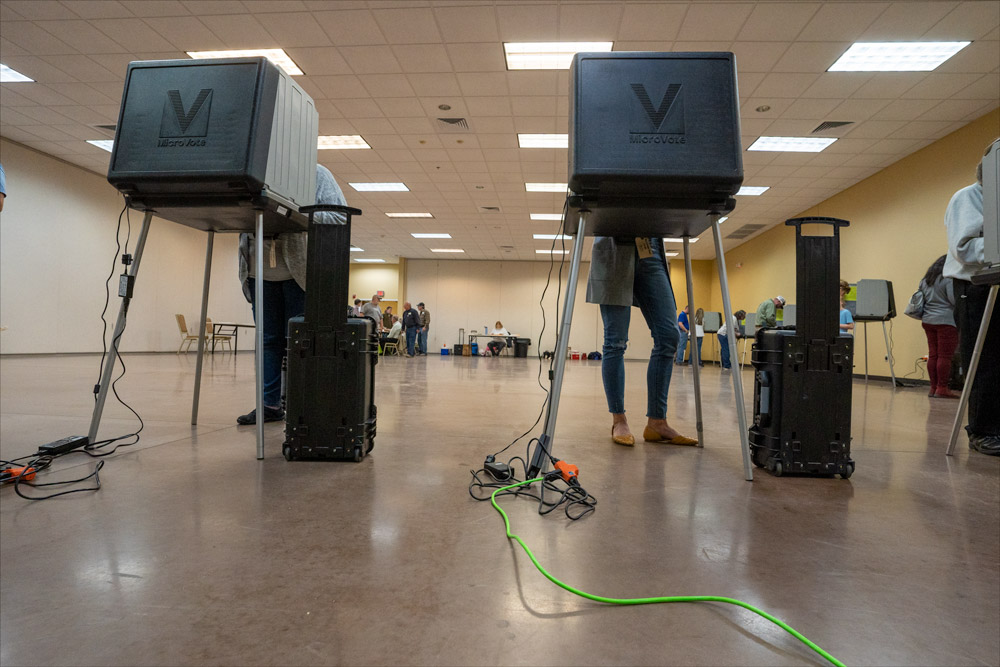Maine's First Post-Election Audit Pilot Program: A Comprehensive Overview

Table of Contents
2.1. Background and Context: The Need for Post-Election Audits in Maine
Maine, like many states, has historically relied on less rigorous post-election verification methods. While recounts have been available under certain circumstances, a systematic, statistically-driven audit program was lacking. The impetus for Maine's First Post-Election Audit Pilot Program stems from several key factors:
- Increasing Voter Confidence: Concerns regarding election security and accuracy have led to calls for greater transparency and verification. A robust audit program can significantly improve voter confidence in the integrity of election outcomes.
- Improving Election Security: Post-election audits provide a valuable mechanism for identifying potential vulnerabilities in the electoral process, including issues with voting machines, ballot handling, or tabulation procedures.
- Responding to National Trends: The increasing national focus on election integrity and the adoption of more rigorous auditing methods in other states influenced the decision to implement this pilot program in Maine.
Recent Maine election data reveals a consistently high voter turnout, highlighting the importance of ensuring accurate and reliable counting of ballots. Analyzing voter turnout statistics in conjunction with close election results underscores the need for enhanced post-election verification procedures to maintain public trust and election integrity in Maine.
2.2. Program Design and Methodology: How the Pilot Program Works
Maine's First Post-Election Audit Pilot Program has been carefully designed to test the feasibility and effectiveness of different audit methodologies. The program's initial phase focuses on:
- Selected Counties/Municipalities: Specific counties or municipalities were selected for the pilot program based on factors such as population size, voting system diversity, and historical election data. The selection criteria aimed to provide a representative sample of Maine's diverse electoral landscape.
- Audit Types: The pilot program employs a risk-limiting audit (RLA) methodology. RLAs are statistically designed to provide a high level of confidence that the reported election results accurately reflect the voters' choices. This method allows for a targeted approach, focusing resources where they are most needed based on risk assessment.
- Step-by-Step Process: The RLA process includes:
- Random Ballot Selection: A statistically determined number of ballots are randomly selected from each precinct.
- Manual Recount and Verification: Selected ballots are manually recounted and compared against the electronic tallies to verify accuracy.
- Discrepancy Resolution: Any discrepancies are investigated and resolved through established procedures.
- Roles and Responsibilities: The program involves collaboration among the Secretary of State's office, county election officials, designated auditors, and potentially independent election observers. Clear roles and responsibilities are defined to ensure transparency and accountability.
2.3. Key Stakeholders and Their Involvement
The success of Maine's First Post-Election Audit Pilot Program relies on the cooperation and participation of various stakeholders:
- Secretary of State's Office: Provides overall program oversight, establishes guidelines, and coordinates activities.
- County Election Officials: Responsible for implementing the audit process within their respective jurisdictions.
- Political Parties: May participate as observers to ensure transparency and fairness.
- Election Observers: Independent observers may be invited to monitor the audit process and provide additional oversight.
- Voting Machine Vendors: May be consulted to address any technical aspects related to the verification process.
The level of engagement and cooperation among these stakeholders will be critical in determining the success and long-term impact of the program. Any controversies or challenges encountered will be documented and addressed transparently.
2.4. Expected Outcomes and Potential Impact
Maine's First Post-Election Audit Pilot Program is expected to yield several positive outcomes:
- Increased Public Trust: By demonstrating the accuracy and reliability of the election process, the program aims to enhance public confidence in Maine's elections.
- Improved Election Accuracy: The risk-limiting audit methodology should help identify and correct any errors in the election results, ultimately improving their accuracy.
- Identification of Vulnerabilities: The audit process can highlight potential vulnerabilities in the election system, allowing for proactive improvements in election security.
The long-term implications of this program extend beyond Maine. The results and lessons learned could influence election auditing practices in other states, contributing to a nationwide improvement in election integrity.
2.5. Funding and Resources: Supporting the Pilot Program
The funding for Maine's First Post-Election Audit Pilot Program is primarily sourced from [Specify funding source, e.g., state budget allocation]. These resources cover various aspects of the program:
- Personnel: Funding supports the recruitment and training of auditors and other personnel involved in the audit process.
- Technology: Investment in relevant software and hardware may be necessary for data management and analysis.
Efficient resource allocation is crucial for ensuring the successful execution of the pilot program and achieving its objectives.
Conclusion: Maine's First Post-Election Audit Pilot Program: Looking Ahead
Maine's First Post-Election Audit Pilot Program represents a significant step towards enhancing election integrity and promoting public trust in Maine. The program’s use of a risk-limiting audit methodology, along with the collaborative efforts of various stakeholders, is crucial in improving election accuracy and identifying potential vulnerabilities. The findings from this pilot program will inform future election administration practices, both within Maine and potentially across the nation. To learn more about this vital initiative and to stay informed about election integrity efforts in Maine, visit [insert links to relevant resources here]. Let's work together to strengthen our democratic process and ensure the fairness and accuracy of every election. Learn more about Maine's post-election audit program and how you can contribute to improving election integrity in Maine.

Featured Posts
-
 Cay Fest On Film Splice Exploring The Documentary
May 02, 2025
Cay Fest On Film Splice Exploring The Documentary
May 02, 2025 -
 Fortnite Update V34 30 Sabrina Carpenter Collaboration Gameplay Changes And Downtime
May 02, 2025
Fortnite Update V34 30 Sabrina Carpenter Collaboration Gameplay Changes And Downtime
May 02, 2025 -
 Daisy May Coopers Honest Confession Job Loss Following Admission Of Stealing
May 02, 2025
Daisy May Coopers Honest Confession Job Loss Following Admission Of Stealing
May 02, 2025 -
 800 Emergency Calls In Tulsa Firefighters Tackle House Fires And Rescues During Winter Weather
May 02, 2025
800 Emergency Calls In Tulsa Firefighters Tackle House Fires And Rescues During Winter Weather
May 02, 2025 -
 Riot Platforms Inc Early Warning Report And Proxy Statement
May 02, 2025
Riot Platforms Inc Early Warning Report And Proxy Statement
May 02, 2025
